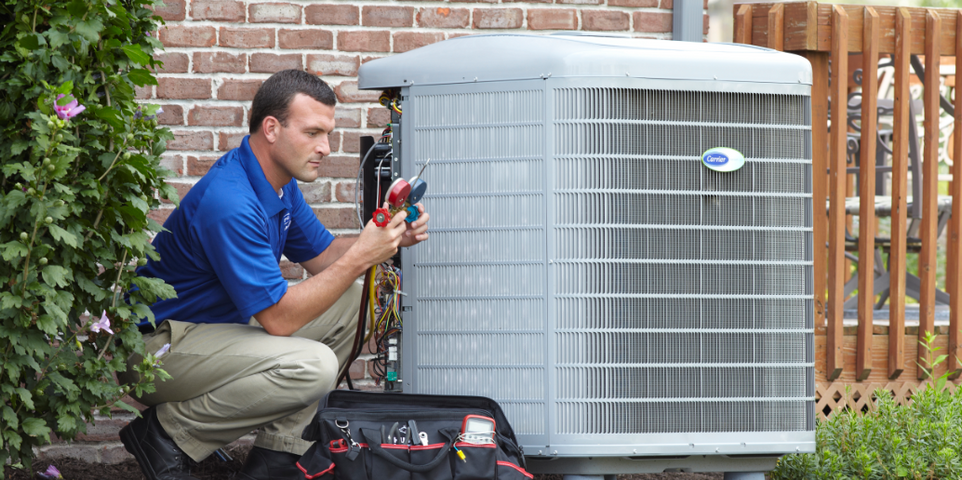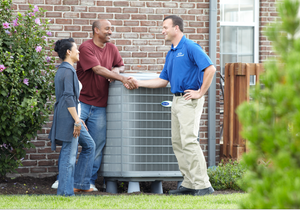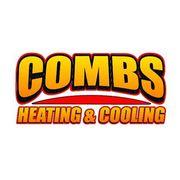
Heating, Ventilation, and Air Conditioning systems, often shortened to HVAC systems, are the unsung heroes of frigid winter nights and sweltering summer days. While this blanket term refers to any system that keeps your house comfortable, the various HVAC options on the market could not be more different in how they fulfill this mission. The key to having optimal heating and cooling is to find out which system is best for your space.
Types of Heating & Cooling Systems
Heating Systems
When deciding on a heating system, you have three types to choose from:
- Furnace: This option uses a furnace to heat the air, and a blower moves the air through ducts to warm the house. It is the most common type of heating.
- Boiler: In this system, a boiler heats water, which flows through pipes into radiators throughout the house to provide warmth.
- Ductless Heating and Cooling System: As opposed to the other two HVAC options that are whole-house systems, this type heats by specific zones established around the house, making it more energy efficient. It operates through a heat pump, which collects outside air, warms it, and delivers it inside the house. The unit’s cooling function has the opposite process, which collects warm air from inside and disperses it outside. These systems can come in two types: packaged or split. Packaged units have the entire system in a metal cabinet outside, while split units have the cooling component of the heat pump housed separately in a cabinet inside your home.
Cooling Systems
The cooling options for an HVAC system are equally as distinct and usually pair with a specific type of heating:
- Whole-House Air Conditioner: This AC system is paired with a furnace, and it uses the ducts to deliver cool air throughout the house. It can come in either a single configuration, which sends the same amount of cooled air constantly, or a multistage variable speed, which uses the lowest level of cooling needed and only ventures to higher levels in extreme heat.
- Window Units: The first option for cooling with a boiler system, a window unit provides AC for a specific room. It is also the more cost-effective option since the unit itself is cheaper, and you can install it yourself. Contrary to popular belief, a window unit isn’t just sucking the hot air from a room and dispersing it outside; instead, it uses two separate cycles of air, cold on the inside and hot on the outside, to deliver AC. On one end, the unit sucks the hot, humid air from the room and sends it through a cooling coil to chill and dehumidify the space. The other end of the unit stays outside so that the atmospheric air can absorb the heat from the condenser, which provides the refrigerant that cools the rest of the system. This hot air cycle is vital to the air-conditioner, as the condenser will compromise the process inside if it overheats.
- Mini-Split System: The second option for AC with a boiler, a mini-split system uses the cooling strategy of the ductless system, which removes hot air inside and pumps it back outside. As the name suggests, the cooling component—known as an evaporator coil—is housed inside.
Factors for Choosing Your System
An HVAC system will be in your home for upwards of 15 to 20 years if you properly maintain it. To assure you get the most out of your choice, a couple of factors come into play.
Energy Efficiency
HVAC systems are notorious energy suckers, but there are plenty of energy-efficient units on the market nowadays. When shopping for your unit, look for the Energy Star label to narrow your options. While an energy-efficient system may cost a little more upfront, it is worth the investment because it will save you money in the long run on utilities (not to mention that it will help the planet).
Installation
 Hire a contractor who is certified by the manufacturer to install their product. Using a specialist ensures the system is installed correctly, and there will be no surprise issues later due to a contractor’s mistake.
Hire a contractor who is certified by the manufacturer to install their product. Using a specialist ensures the system is installed correctly, and there will be no surprise issues later due to a contractor’s mistake.
Well-Known Brands
Choose a popular HVAC brand—like Carrier®—because their products are built to last. Trying to cut corners with a cheap unit from an unknown brand will result in the same buying process a few years down the line.
Annual Checks & Maintenance
Regular maintenance of your HVAC system will extend the life of it with little additional effort. Each heating option has specific tasks to care for the unit:
- Furnace: Change the filter regularly.
- Boiler: Have a contractor tune up the boiler, clean the burners, and check for carbon monoxide leaks.
- Ductless system: Clean the filter regularly by removing, washing, and reinserting it.
AC maintenance is more general, and it applies to any type of unit:
- Once a month: Clean or change air filters.
- Once a season: Remove debris from around the unit. Anything from leaves to dirt to foliage can block airflow, making the unit less efficient.
- Once a year: clean the coils and straighten the coil fins. An HVAC specialist will likely do this for you on an annual visit.
Regardless of the HVAC system you have, schedule a contractor once a year to check that your system is working as efficiently as possible.
To assure you choose the best heating and cooling system based on your home and your preferences, a recommendation from an HVAC professional will steer you in the right direction. For the past decade, Combs Heating & Cooling has been the trusted expert in Chillicothe, OH, for HVAC installation and repair, whose honesty and integrity sets them apart from the competition. To learn more about their services and how to get a free estimate on a new system, call them at (740) 772-2233 or visit them online.
About the Business
Have a question? Ask the experts!
Send your question

